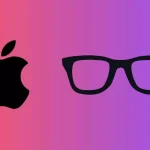May 5, 2025 – Microsoft has officially closed the chapter on Skype, shutting down the iconic communication platform on May 5, 2025, after 22 years of connecting people worldwide. Launched in 2003, Skype was once a trailblazer in online communication, introducing free voice and video calls at a time when such technology was groundbreaking. However, as the digital communication landscape evolved, Skype struggled to keep pace with competitors like Zoom, WhatsApp, and FaceTime, leading Microsoft to redirect its focus to Microsoft Teams. This closure marks a significant shift in the tech ecosystem, raising questions about the sustainability of legacy platforms in an era of rapid innovation.
Skype’s origins trace back to a small Estonian startup, where its name—a blend of “Sky” and “peer-to-peer”—reflected its innovative use of peer-to-peer technology to route calls through the internet. By 2011, when Microsoft acquired it for $8.5 billion, Skype had amassed over 600 million users, becoming a go-to platform for long-distance personal calls, remote interviews, and early online collaboration. Its peak popularity came during the early 2010s, with users like Anna Petrova recalling how Skype enabled her to stay connected with family across continents during a time when international calls were prohibitively expensive. Yet, as mobile-first platforms like WhatsApp and FaceTime emerged with simpler interfaces, and Zoom capitalized on the pandemic-driven remote work boom, Skype’s user base dwindled to just 30 million by 2024, compared to Teams’ 320 million monthly active users.
Factors Behind Skype’s Decline
Here’s why Skype lost its edge:
- Lack of Innovation: Skype failed to integrate modern features like AI-driven transcription, real-time translation, or seamless mobile design, which competitors adopted swiftly.
- Poor Integration: Despite Microsoft’s acquisition, Skype never fully integrated into its broader ecosystem, feeling disjointed compared to Teams’ cohesive design.
- Competitive Pressure: Zoom’s lightweight interface, WhatsApp’s end-to-end encryption, and FaceTime’s Apple ecosystem integration drew users away.
- Strategic Shift: Microsoft prioritized Teams, diverting resources and leaving Skype with minimal updates and support.
The shutdown has not been without challenges for users. Microsoft has provided a migration path, allowing Skype users to sign into Teams with their existing credentials, automatically transferring chats, contacts, and files. A Skype Dial Pad within Teams ensures that paid users can continue making international calls, though many have expressed frustration over unrefunded Skype credits. For instance, a user named Mark Thompson highlighted on social media that Microsoft’s refusal to offer refunds or credits toward other services like Azure subscriptions felt like a betrayal after years of loyalty. This sentiment underscores broader concerns about user trust during such transitions, especially for businesses facing productivity losses—estimated at up to 71% by a 2023 Gartner study—due to retraining and data migration challenges.
Skype’s closure reflects a larger trend in the tech industry, where even pioneering platforms can become obsolete without continuous innovation. It joins the ranks of services like AOL Instant Messenger, Google Hangouts, and BlackBerry Messenger, all of which faded as user needs shifted. For those still relying on Skype for its unique ability to dial landlines directly, alternatives like Google Voice or Zoom may suffice, though they lack the same legacy charm. Microsoft’s pivot to Teams aligns with its focus on AI-driven communication, as Teams offers features like predictive scheduling, noise suppression, and real-time transcription—capabilities Skype never adopted at scale. This shift also mirrors broader industry trends, where platforms are increasingly expected to integrate seamlessly into users’ daily workflows, a standard Skype couldn’t meet.
For many, Skype’s shutdown is a nostalgic loss, a reminder of a simpler era of digital communication when grainy video calls were a novelty. As users transition to Teams or other platforms, the challenge will be preserving the personal connections Skype once fostered while adapting to new tools. What’s your fondest Skype memory, and how will its closure affect your communication habits? Share your thoughts in the comments—we’d love to hear how this platform shaped your digital life.







